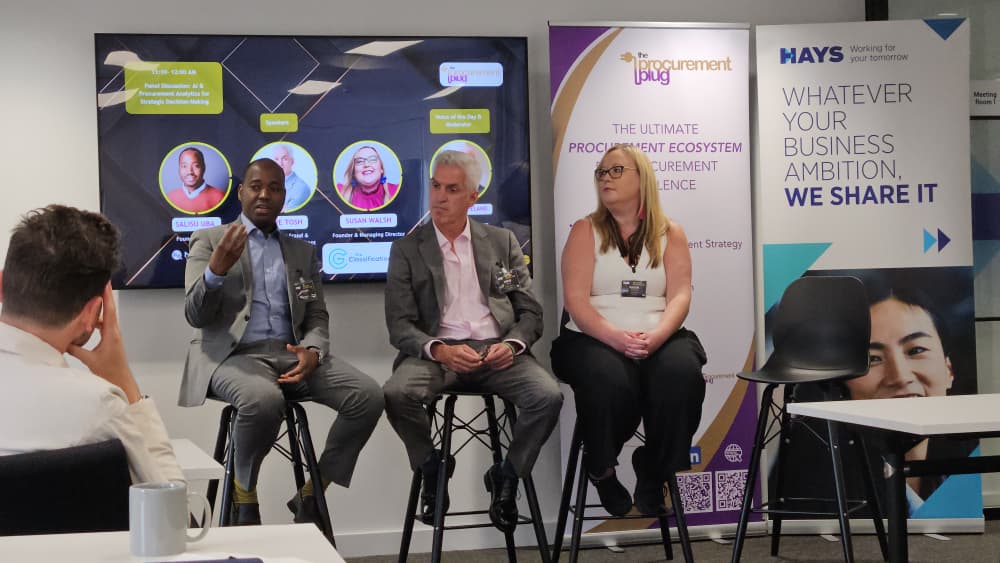OpenAI’s newest AI model is the ChatGPT, an AI-based text generator that became available to the public in early December. The quality of the text it makes has been both praised and criticised. ChatGPT is a chatbot that sounds so real that it can write pages of intelligent prose about almost any topic. What we know so far is that it is a computer AI programme that is made to talk to people in a way that seems natural and interesting. It responds to user input using a popular GPT (Generative Pre-training Transformer) language model.
From a business perspective, ChatGPT can make communication easier. It can make it easier for businesses and their suppliers to talk to each other by letting them exchange orders, track shipments, and solve problems in real-time.
ChatGPT can find better deals and help businesses negotiate better terms with suppliers, and it can look at historical data and market trends to find the best value for money and help businesses negotiate better terms with suppliers.
ChatGPT can give you information about market trends and can give you valuable information about market trends, which can help businesses make better purchasing decisions.
Even though it is designed to be very accurate, it may make mistakes or not understand what you want. It’s important for businesses to carefully think about the risks of ChatGPT and make plans for what to do if something goes wrong.
ChatGPT could change how businesses talk to their suppliers and manage their procurement processes in the world of procurement and supply today and in the future.
One of the best things about ChatGPT for procurement and supply is that it could make it easier for businesses and their suppliers to talk to each other through a simple chat interface, ChatGPT makes it easy for businesses to send and receive orders, track shipments, and solve problems in real-time. This can help reduce the time and effort needed to manage procurement processes, freeing up resources for other tasks.
Secondly, in procurement and supply, another benefit of ChatGPT is that it can help businesses find and negotiate better deals with suppliers by looking at past data and market trends, ChatGPT can help businesses determine which suppliers offer the best value for money and negotiate better terms. This could help businesses cut costs and make more money.
However, even though ChatGPT has a lot of benefits for procurement and supply, there are also some risks to consider. Putting too much faith in technology could be a risk. If ChatGPT has a technical problem or goes down, it could make it hard for people to talk to each other and slow down the procurement process. To lessen this risk, businesses should ensure they have solid backup plans and regularly test and maintain their ChatGPT systems when deployed.
Another risk to think about is that ChatGPT might make mistakes or not understand what you want. ChatGPT has been made to be very accurate, but it is not perfect and may sometimes make mistakes or not understand what you want. Procurement people and businesses should ensure that their ChatGPT systems are well-trained and regularly updated with the most recent data and language models to reduce the chance of mistakes.
Overall, ChatGPT has the potential to change how businesses talk to their suppliers and handle their purchasing processes within the world of procurement and supply. Its ability to make communication easier, find and negotiate better deals, and give businesses information about market trends can help them improve efficiency, cut costs, and make more money.
In summary, Procurement and supply professionals should know that ChatGPT is a chatbot that uses a version of the popular GPT (Generative Pre-training Transformer) language model. It is made to talk to people naturally and interestingly. Procurement and supply professionals should know that ChatGPT has a number of benefits. These things are:
- Streamlining communication: ChatGPT can make it easier for businesses and their suppliers to talk to each other by letting them exchange orders, track shipments, and solve problems in real time.
- Getting better deals: ChatGPT can look at past data and market trends to find the best value for money and help businesses negotiate better terms with their suppliers.
- Giving businesses information about market trends: ChatGPT can give businesses valuable information about market trends and help them make better purchasing decisions.
Professionals in procurement and supply should also be aware of the possible risks of ChatGPT. These things are:
- Reliance on technology: If ChatGPT has a technical problem or goes down, it could make it hard for people to talk to each other and slow the procurement process.
- Even though ChatGPT is designed to be very accurate, it may sometimes make mistakes or not understand what you want.
- Professionals in procurement and supply should be ready to deal with these risks by making contingency plans and regularly testing and maintaining their ChatGPT systems. Also, they should ensure that their ChatGPT systems are well-trained and have the latest data and language models to reduce the chance of mistakes.
Overall, ChatGPT has the potential to make the procurement and supply field a lot more efficient and effective.




